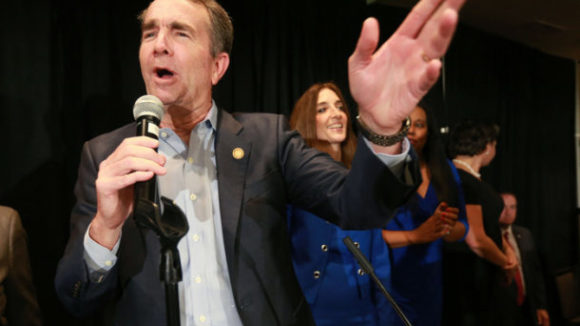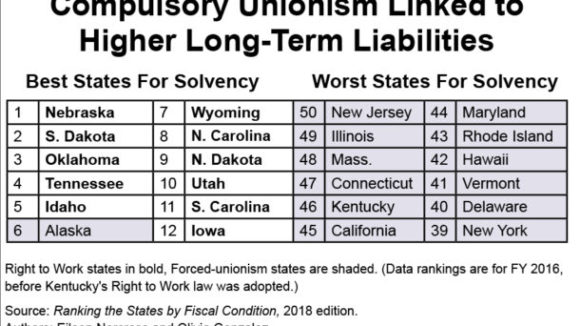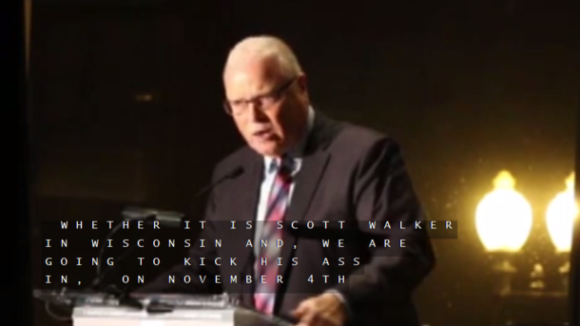'Too Bad For Recently Hired, Talented Teachers'
(Source: June 2010 NRTWC Newsletter)
Union Bigwigs Make Sure Public School Layoffs Are 'Quality-Blind'
In recent years, forced dues-funded teacher union lobbyists and union negotiators played a major role in convincing public officials to increase the number of instructional employees at K-12 public schools at a blistering clip.
Nationwide, the number of K-12 public school instructional employees (full-time equivalent) grew roughly 3.5 times as much as the number of school-aged children (15.9% vs. 4.5%) from 1998 to 2007.
This spring, Gaylene Hayden was one of just six Indiana K-12 public school teachers to be recognized for their "outstanding service." Teacher union boss-perpetuated seniority rules have since cost her her job. (Fox 59 News, Bloomington, Ind.)
Since an estimated 65% of U.S. public schoolteachers are under union monopoly bargaining, and more than 40% are forced to pay union dues or fees as a job condition, K-12 employment growth that far outpaces the growth of America's five to 17-year-old population represents a huge windfall for Big Labor.
However, in the wake of the severe 2008-2009 recession, many strapped states now have no choice but to pare back a small portion of the K-12 instructional staff increases of the previous decade.
Hoosier Teachers Recognized For 'Outstanding Service,' Then Laid Off
When school officials have the power to restrict layoffs to employees they have identified as the least effective, then occasional recession-related reductions in force of 5–10% are not necessarily detrimental to student achievement, according to education experts like Stanford University's Eric Hanushek.





